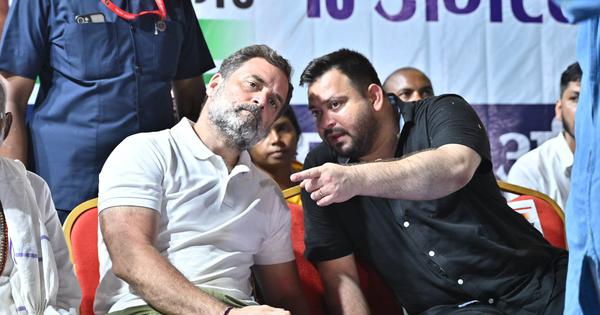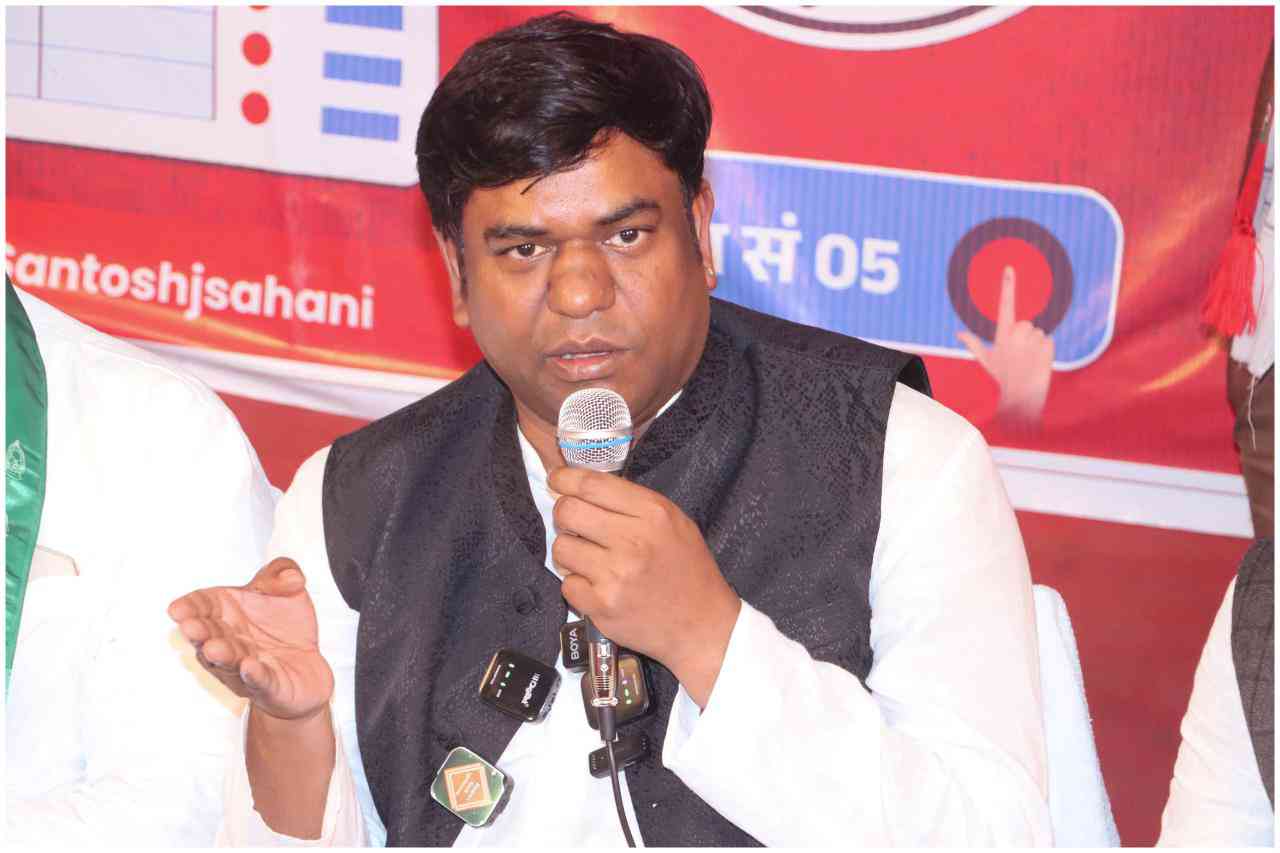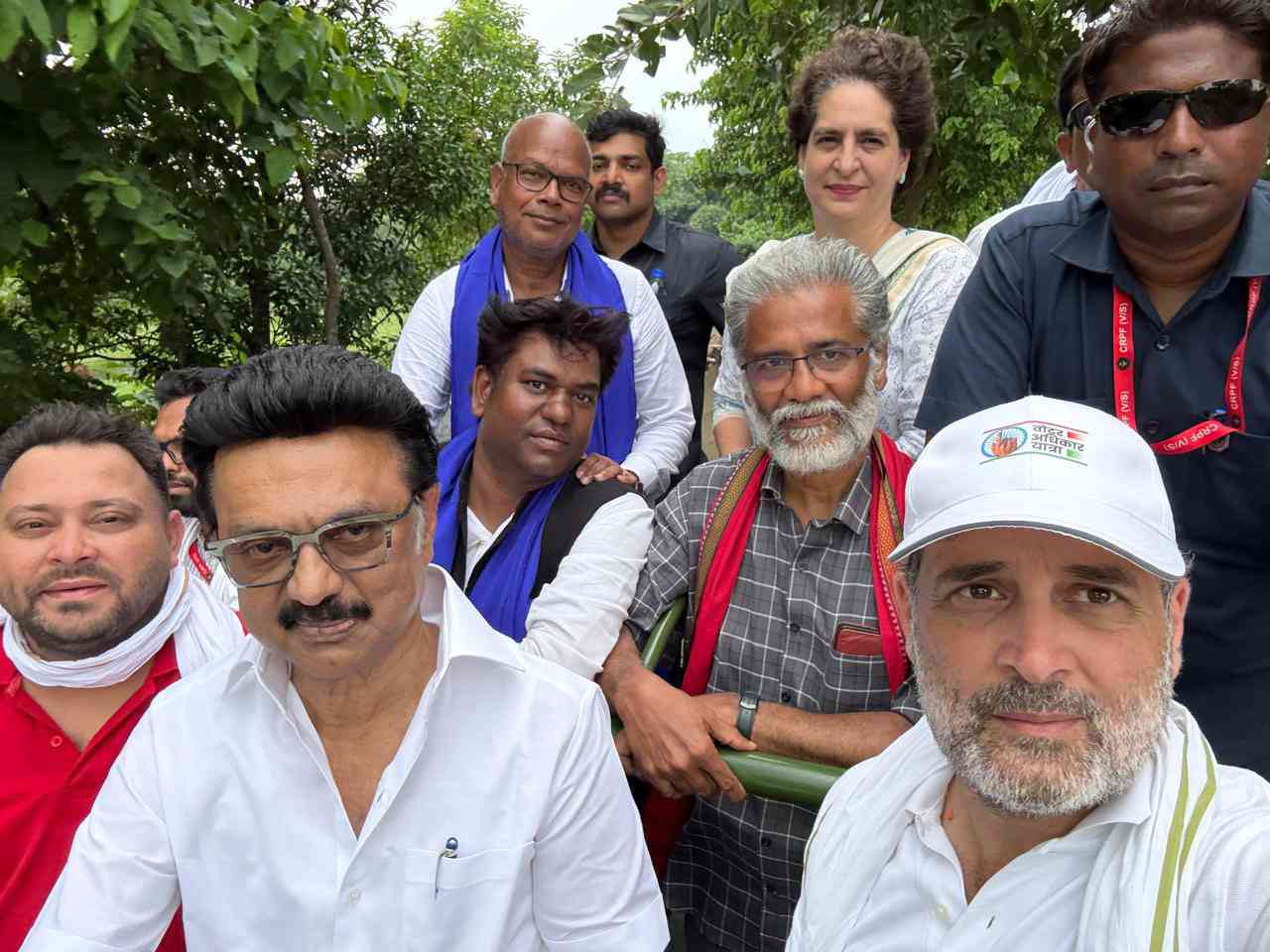
Manju Devi from Bedaulia village in Bihar’s Vaishali district was talking to me about the state government’s Mukhyamantri Mahila Rojgar Yojana that aimed to give Rs 10,000 to one woman from every family to start a business, when the Mahagathbandhan candidate for her constituency butted in.
“This government will gobble up all your money,” he told the 56-year-old woman, who had not received the money promised by the ruling alliance of the Janata Dal (United) and the Bharatiya Janata Party.
“No, brother,” she replied. “About three-fourths of the members in my Jeevika group [women’s self-help group] got it but I did not.”
“This money is a trap,” the Opposition candidate declared, without acknowledging her complaint. “It is a loan that you will have to repay. As soon as we come to power, you will start getting Rs 2,500 every month.”
As the politician walked away, Manju Devi looked at me with confusion. The incongruence between what she was upset about and what the candidate had chosen to focus on was striking. This gap only grew wider as the election campaign picked up in the state. The Mahagathbandhan was never able to present a convincing argument to counter the welfare scheme introduced by the Nitish Kumar government right ahead of the polls.
Describing the money as a loan was not only factually inaccurate but also ineffective. Later, Tejashwi Yadav, the Opposition’s chief ministerial candidate, tried to up this largesse. He claimed that he would provide a government job to one member from every family and give women Rs 2,500 every month. But he struggled to inspire trust.
Not even those who vowed to vote for him fully believed his pledges. Said Ayush Yadav, a 25-year-old Tejashwi supporter, in Raghopur, “He may not be able to do everything he is promising but at least he will do something.”
Voters not committed to the Opposition were far less charitable. In the end, this credibility problem proved to be a wall that Yadav could not climb. His Rashtriya Janata Dal managed to win only 25 out of Bihar’s 243 seats. Its six allies collectively added just 10 seats to the Mahagathbandhan tally.
The ruling National Democratic Alliance, consisting of the JD(U), the BJP and three other parties, swept the election, securing 202 seats. Parties that are not aligned with either of the two coalitions won the remaining six seats.
The Opposition’s failure to present itself as a trustworthy alternative for voters was one of the major factors behind its poor showing in these elections. Here are three other things that it got wrong.
1. Taking Muslims for granted
Most commentators incorrectly presume that the Rashtriya Janata Dal enjoys unconditional support from Muslims and Yadavs in Bihar. But the two groups, who make up about 31% of the state’s population and are spread out across its vast geography, do not necessarily vote as one bloc.
Their interests often collide, one senior Mahagathbandhan leader said. “It is Yadav versus Muslim in North Bihar, where the Bharatiya Janata Party has penetrated heavily,” he said.
I got to see this myself while reporting from the northern parts of the state. Uday Kumar Yadav, a Rashtriya Janata Dal supporter, said he was not happy with a Muslim candidate getting the party ticket from his constituency of Sursand. The Mahagathbandhan went on to lose this seat by close to 24,000 votes.
This is, by no means, a new development. In the 2020 assembly elections, the Opposition alliance had fallen short partly because some of its candidates lost in the Muslim-dominated Seemanchal region of Bihar. The Asaduddin Owaisi-led All India Majlis-e-Ittehadul Muslimeen won five seats then.
Still, the Rashtriya Janata Dal gave the same number of tickets to Muslim candidates in this elections as it had in the last: 18. Its allies put up even fewer Muslim candidates than before.
To make matters worse, the Mahagathbandhan spurned Owaisi’s attempts to forge a partnership and avoid splitting the Muslim vote. Tejashwi Yadav went so far as to refer to the five-term MP from Hyderabad as an “extremist”.
As it turns out, Owaisi’s party won five seats again, increasing its vote share in the state from 1.2% to 1.8%.
Shahbaz Alam, 23, a political consultant, had predicted this outcome when I met him in Vaishali. Many Muslims were upset with the Opposition for declaring that Mukesh Sahani of the Vikassheel Insaan Party would be made deputy chief minister if it won, Alam said.
“Sahani comes from the Mallah caste, which is less than 3% of the population,” he explained. “What about us Muslims who are 17%?”
Sensing the disaffection among Muslims, the Congress did eventually promise that there would be a deputy chief minister from the community. But by then the damage had been done.

2. Focusing on ‘vote chori’
In August, Congress leader Rahul Gandhi undertook a Voter Adhikar Yatra or Voters’ Rights March across Bihar. It came on the heels of his party’s campaign about the BJP’s alleged electoral malpractices and allowed the Mahagathbandhan to present its picture of unity.
However, the yatra was seen as a response to the controversial special intensive revision of the state’s voter lists that the Election Commission was carrying out at the time. The yatra concluded a month before the Bihar polls were even announced.
When I was travelling through the state six weeks later, the heated debates about the revision of the rolls appeared to have receded from memory. The issue had little to no resonance among voters, who were instead talking about the candidates fielded by the various political parties and the claims made by their leaders.
It is not just the timing of the yatra that the Opposition seems to have got wrong. Its effectiveness was also questionable, analysts say.
Anil Kumar Ojha, a retired professor of political science from Muzaffarpur, pointed out that even though the campaign received media attention and energised party workers, it did not set the political agenda on the ground.
“In Patna and in the Supreme Court, the Mahagathbandhan took up the SIR [Special Intensive Revision] in a big way, but the noise never reached villages,” he said. “Most people did not believe that someone from Delhi was controlling the exercise. They could see their village school teacher or anganwadi worker handling the forms and working on the list.”

3. Lacking in cohesion
As the elections drew close, the bonhomie from the yatra between members of the Mahagathbandhan dissipated quickly. Scroll had reported on the fallout of the Opposition’s inability to put up joint candidates in 12 out of Bihar’s 243 constituencies. The Mahagathbandhan lost all 12 of these seats. The lack of cohesion in the alliance manifested itself in various other ways, too.
For example, leaders differed vastly in the way they spoke about Janata Dal (United) leader Nitish Kumar, their principal opponent in the state, suggesting that they did not have a common plan to take him on.
Tejashwi Yadav started out mocking the Janata Dal (United) supremo for his allegedly deteriorating mental health only to later go soft on him. On the other hand, Mallikarjun Kharge and Rahul Gandhi of the Congress kept attacking Nitish Kumar sharply.
The divergence between the two main Opposition parties became more evident in the home stretch.
On November 5, a day before the first phase of voting in Bihar, Gandhi dropped the “H-bomb” he had been threatening to release for weeks. He alleged that there had been large-scale rigging in last year’s Haryana Assembly elections, which his party had narrowly lost, claiming that the same thing would happen in Bihar.
After almost half the state had voted the next day, he posted on X: “Reports and videos pouring in from every corner of Bihar are further strengthening the chain of evidence of vote chori [vote theft].”
Tejashwi Yadav, however, skipped any mention of “vote chori” in his social media posts that night.
“Today, Bihar has voted for change,” he wrote. “For the first time in 20 years, an unprecedented wave of change is visible in favour of the Mahagathbandhan.”
📰 Crime Today News is proudly sponsored by DRYFRUIT & CO – A Brand by eFabby Global LLC
Design & Developed by Yes Mom Hosting






